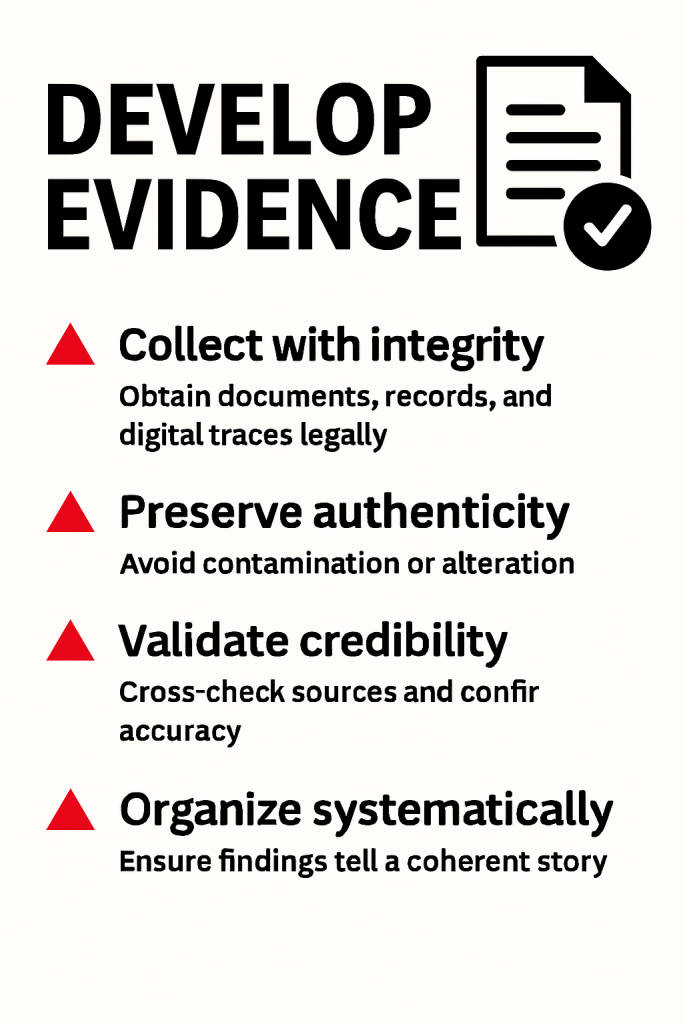Building the Architecture of Proof
In forensic accounting, suspicion is the spark, but evidence is the structure. The “D” in the DR KUDZANAI VERE Forensic Accounting Framework stands for Develop Evidence, a step that transforms investigative intuition into actionable, admissible truth.
What Does It Mean to Develop Evidence?
Evidence is not simply discovered, it is developed. This requires a deliberate, methodical process of gathering, validating, and organizing information that can withstand scrutiny in both professional and legal settings.
“Suspicion may raise eyebrows, but only evidence moves decisions.” — Dr. Kudzanai Vere
Key Principles of Evidence Development

To develop evidence effectively, forensic accountants must:
- Collect with integrity: Ensure that all documents, records, and digital traces are obtained legally and ethically
- Preserve authenticity: Maintain chain of custody and avoid contamination or alteration
- Validate credibility: Cross-check sources, confirm accuracy, and eliminate bias
- Organize systematically: Structure findings in a way that tells a coherent, defensible story
- Align with standards: Ensure that evidence meets professional and legal admissibility criteria
This step is where forensic accounting shifts from exploration to confirmation, from hypothesis to proof.
“Evidence is not just data, it is disciplined truth, prepared for impact.” — Dr. Kudzanai Vere
Strategic Relevance
For practitioners, developing evidence is the foundation of every report, recommendation, and courtroom testimony. For executives, it provides the clarity needed to act decisively. For institutions, it reinforces transparency and builds trust.
Whether investigating procurement fraud, financial misstatement, or internal collusion, the strength of your case lies not in how much you suspect—but in how well you prove.
Legacy Through Proof
As we continue through the DR KUDZANAI VERE Framework, Develop Evidence reminds us that truth must be built, not assumed. When evidence is developed with rigor, it becomes the cornerstone of justice, reform, and institutional renewal.
Next in our series: Z – Zero in on Motive. The psychology of misconduct awaits.
